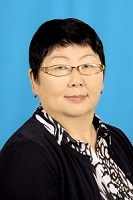Psychological features of the professional activities of Tuvan musicians
DOI:
https://doi.org/10.25178/nit.2017.2.13Keywords:
Tuva; Tuvan music; musician; acmeological method; acmeogram; acmeological invariants of professionalismAbstract
Article presents the study of psychological peculiarities of professional activities of Tuvan musicians. It reviews the effect of psychological characteristics on growth of value aspects of professionalism. Author analyzes the factors that retard the development of performance and improvisation skills and level of education, discerns the openness of Tuvan musicians for innovation.
In 2016 musicians of the Center for Development of Traditional Tuvan Culture and Crafts, National Orchestra of the Republic of Tuva and amateur khoomei performers were interviewed. Total number of those surveyed was 31 aged from 16 to 54, all – male. Method of acmeological research was employed. Survey also relied on methods of testing, conversation, surveillance, interview, polling.
Analysis revealed that performing activities of Tuvan musicians have some peculiarities. They consist of the complex of different characteristics, conditions, factors. The most important among them are the traits of national character of Tuvans, traditions of Tuvan musical culture. Professionalism of Tuvan musicians shapes by no means only through the special musical education. Self-education that one receives by traditional ways of passing the performance practices can have no less important value.
Author has already conducted such a research in relation to another professional group of Tuvan ethnos – in 2015 with pedagogues, so this time she has a chance to compare the data. Author distinguishes the elements of mentality, traits of national character that characterize the either group by virtue of ethnic identification and, in some degree, affect the professionalism of both. Dampers for professional growth are inertia, low sociability, meditativeness, self- depreciation and reluctance to innovations. Nonetheless, strong traditionalism conceived as uniqueness is perceives as a factor that promotes professionalism.
References
Тува; тувинская музыка; музыкант; акмеологический метод; Akmeologiia [Acmeology] (2002) : textbook / ed. by A. A. Derkach. Moscow, RAGS. 230 p. (In Russ.).
Bodalev, A. A. (1995) O fenomene ‘akme’ i nekotorykh zakonomernostiakh ego formirovaniia i razvitiia [The phenomenon of ‘Acme’ and some regularities of its formation and development]. Mir psikhologii, no. 3, pp. 113–120. (In Russ.).
Derkach, A. A. (2000) Akmeologiia : lichnostnoe i professional'noe razvitie cheloveka. Metodologo-prikladnye osnovy akmeologicheskikh issledovanii [Acmeology: personal and professional development. Methodological and applied bases of acmeological research]. Moscow. 391 p. (In Russ.).
Kuz'mina, N. V. (1990) Professionalizm lichnosti prepodavatelia i mastera proizvodstvennogo obucheniia [The professionalism of teacher and master of production training]. Moscow, Vysshaia shkola. 117 p. (In Russ.).
Kyrgys, Z. K. (2002) Tuvinskoe gorlovoe penie [Tuvan throat singing]. Novosibirsk, Nauka. 236 p. (In Russ.).
Lamazhaa, Ch. K. (2004) Rezkaia kontinental'nost' tuvintsev. Zarisovki ob osobom vnutrisaianskom mire. Tsentr Azii (newspaper), no. 32 [online] Available at: http://www.centerasia.ru/issue/2004/32/1166-rezkaja-kontinentalnost-tuvincev.html (access date: 02.02.2017). (In Russ.).
Lamazhaa, Ch. K. (2011) Tuva mezhdu proshlym i budushchim [Tuva between the Past and the Future]. 2nd ed. St. Petersburg, Aleteiia. 368 p. (In Russ.).
Lamazhaa, Ch. K. (2013) National temper of Turkic people in Central Asia. The New Research of Tuva, no. 3 [online] Available at: https://nit.tuva.asia/nit/article/view/224 (access date: 02.02.2017). (In Russ.).
Sandyi, A. D.-B. (2015) Psikhologicheskie osobennosti kharaktera tuvinskikh pedagogov i ikh vliianie na formirovanie akmeologicheskikh invariantov professionalizma [Psychological features of character of Tuva teachers and their influence on formation of Acmeological invariant of professionalism]. Mir nauki, kul'tury, obrazovaniia, no. 6 (55), pp. 250–253. (In Russ.).
Tovuu N. O. (2001) Psikhologiia sem'i tuva etnosa v usloviiakh sotsial'no-ekonomicheskikh izmenenii [Psychology of the family of the Tuva people in terms of socio-economic changes]: Diss. … Doctor of Physiology. Moscow. 364 p. (In Russ.).
Suzukei, V. Iu. (2007) Muzykal'naia kul'tura Tuvy v XX stoletii [The musical culture of Tuva in the twentieth century]. Moscow, Kompozitor. 434 p. (In Russ.).
Published
How to Cite
Issue
Section

Author(s) license holder(s) grant rights for their work to the journal (grantee of a license) under the simple non-exclusive open license in accordance with Art. 1286.1 «Open license for a research work, work of literature or fine arts», Civil Code of the Russian Federation.
New Research of Tuva publishes articles under the Creative Commons Attribution-NonCommercial license (CC BY-NC).
Since it is an open license, author(s) reserve the right to upload the article to their institutional repository, submit it to another journal (if it allows republications), or republish it on their own website (in full, or in part).
However, several conditions apply here:
a) The republished version must always contain the name(s) and affiliation(s) of the author(s), the original title and the hyperlink to the original version on the New Research of Tuva website;
b) It must be in open access, free of charge, and no category of readers must be in any way whatsoever advantaged over general readership.
c) should the contribution be submitted elsewhere by its author(s) without substantial modification (30% or more of original text unchanged), the body of the article should contain a disclaimer that the original version was published in New Research of Tuva (with a link to the respective page)
The CC-BY-NC is a non-revocable license which applies worldwide and lasts for the duration of the work’s copyright.









